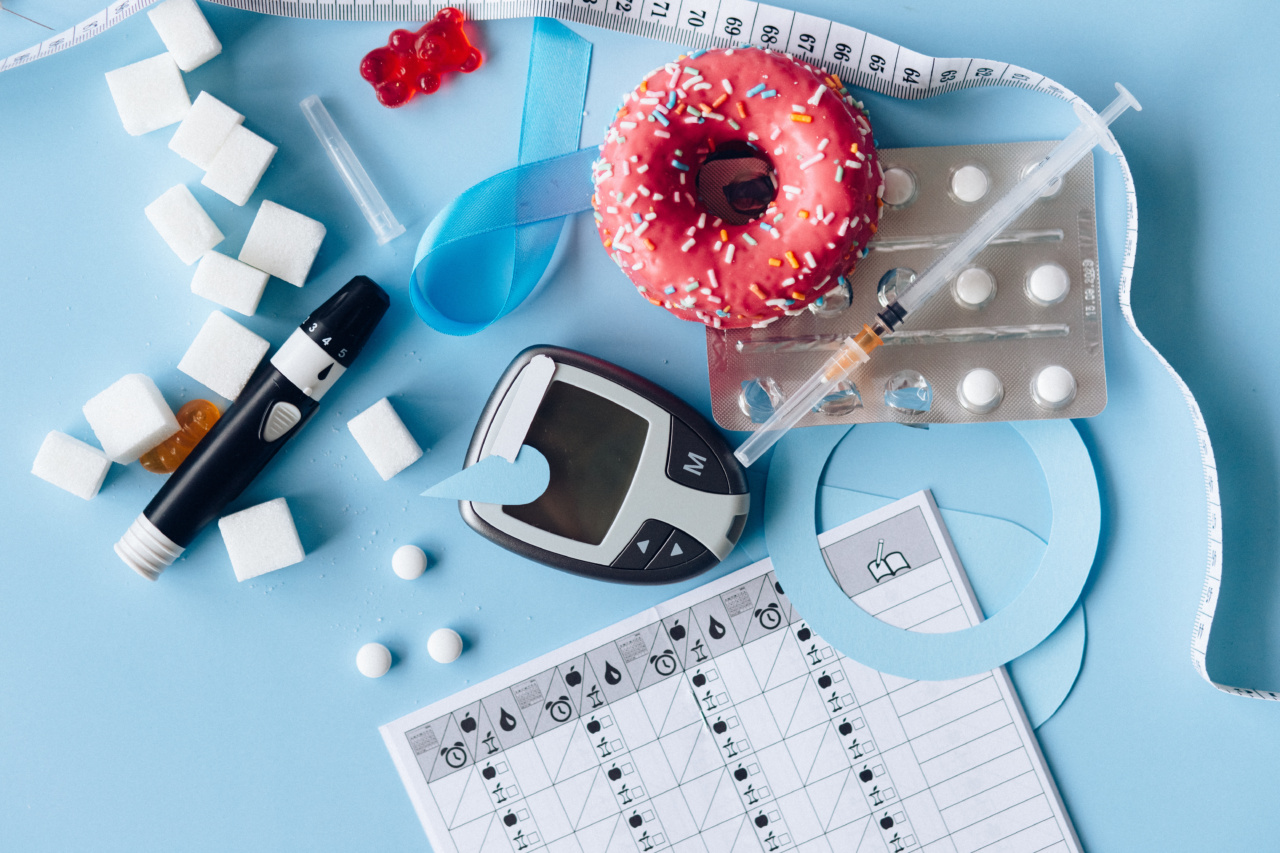When it comes to managing our health, we often turn to medications as a solution. Whether it’s to alleviate pain, treat an ailment, or manage chronic conditions, medications play a crucial role in our well-being.
But what if the very medication you trust to improve your health could actually put you at risk for developing diabetes in just a week? This startling possibility raises questions about the medications we rely on and the potential consequences they may have on our long-term health.
The Link Between Medication and Diabetes
Diabetes is a complex metabolic disorder characterized by high blood sugar levels. It occurs when the body either doesn’t produce enough insulin or cannot effectively use the insulin it produces.
While genetics and lifestyle factors like diet and exercise play a significant role in diabetes, certain medications have also been linked to an increased risk of developing the condition.
One such medication is glucocorticoids, commonly known as corticosteroids. Glucocorticoids are powerful anti-inflammatory drugs that are commonly prescribed to treat conditions like asthma, arthritis, and inflammatory bowel disease.
While they provide significant relief for many patients, recent research has suggested a potential link between glucocorticoid use and an increased risk of diabetes.
The Effect of Glucocorticoids on Blood Sugar Levels
Glucocorticoids work by suppressing the immune system and reducing inflammation in the body. However, they also interfere with the body’s ability to regulate blood sugar levels.
These medications can increase insulin resistance, meaning that the body becomes less responsive to the effects of insulin, leading to elevated blood sugar levels. Over time, this chronic elevation in blood sugar can lead to the development of type 2 diabetes.
Research Findings
A study conducted by researchers at Boston University School of Medicine analyzed the health records of over 380,000 individuals who had received short-term glucocorticoid treatment.
The study found that patients who took glucocorticoids for as little as one week had a significantly higher risk of developing diabetes compared to those who did not take the medication. The risk was highest in the first 30 days of treatment and decreased over time, but still remained elevated even after one year.
Another study published in the Journal of Clinical Endocrinology & Metabolism examined the effects of glucocorticoid use on blood sugar levels in healthy volunteers.
The researchers found that even a single dose of glucocorticoid medication caused a sharp increase in blood sugar levels within hours of administration. This rapid onset of hyperglycemia demonstrates how quickly these medications can disrupt the body’s glucose regulation.
The Importance of Risk Assessment
While the link between glucocorticoids and increased diabetes risk is concerning, it’s important to note that not everyone who takes these medications will develop the condition.
The actual risk depends on various factors, including the individual’s overall health, genetics, and the duration and dosage of glucocorticoid treatment. However, healthcare providers should consider conducting a risk assessment for patients prescribed these medications, especially those who have pre-existing risk factors for diabetes.
Factors that contribute to an increased risk of developing diabetes while on glucocorticoid treatment include age (older adults are at higher risk), family history of diabetes, obesity, and a sedentary lifestyle.
If any of these risk factors are present, healthcare providers may recommend alternative treatment options or closely monitor blood sugar levels during glucocorticoid therapy.
Preventing Diabetes While on Medication
If you are currently taking glucocorticoids or any other medication that may increase your risk of developing diabetes, there are steps you can take to mitigate this risk:.
- Monitor Your Blood Sugar Levels Regularly: Regular monitoring allows you to detect any changes early on and take proactive measures.
- Adopt a Healthy Diet: Focus on consuming a balanced diet rich in fruits, vegetables, whole grains, and lean proteins.
- Engage in Physical Activity: Regular exercise can improve insulin sensitivity and help regulate blood sugar levels.
- Maintain a Healthy Weight: If you are overweight, losing even a small amount of weight can significantly reduce your diabetes risk.
- Communicate with Your Healthcare Provider: Inform your healthcare provider about any concerns or symptoms you may experience while taking medication.
Conclusion
The risks associated with medication use and the potential for developing diabetes within a week are a concerning reality.
While glucocorticoids provide much-needed relief for various conditions, it’s crucial to be aware of the potential side effects they may have on your health. If you are prescribed any medication, particularly glucocorticoids, remember to discuss the potential risks with your healthcare provider and together, determine the best course of action to protect your overall well-being.



























